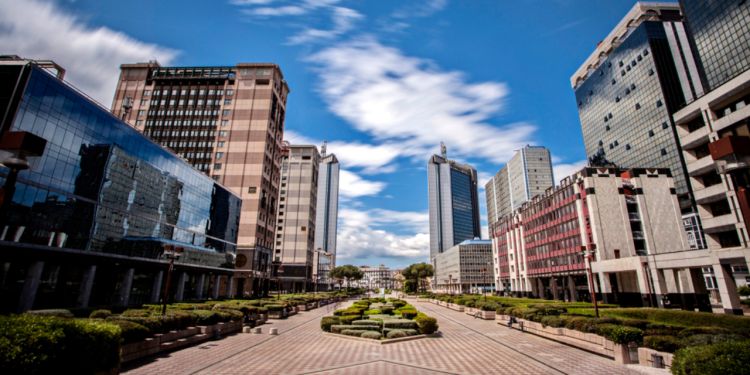Working conditions in Italy

Unless you have decided to move to Italy for retirement or study, you are probably looking for a job to support yourself. This article contains all the essential information you need to know before your move: the formalities for working in Italy, the most prominent sectors, wages and benefits, useful resources, and regulations, among others.
The Italian labor market
To make the most of your chances in Italy, knowing the economic climate and the labor market is important. For example, while Italy is the eighth largest economy in the world, unemployment is a serious problem at the national level. Currently, the unemployment rate is 8.3% of the general population, and 24.5% of the unemployed are young people (March 2022 figures from ISTAT), which means that competition for jobs is high.
The Italian economy is mainly service-based, with the service sector accounting for 75% of the country's GDP. Key industries include engineering, finance, technology, pharmaceuticals, food production and fashion, although tourism also plays a key role.
In addition, most sectors and industries in Italy are subject to national quotas. So it is advisable to look for a job before leaving your country of residence.
Formalities for finding a job in Italy
EU citizens do not need to apply for a Permesso di Soggiorno per Lavoro (work visa) to work in Italy. If you are from a non-EU country, you will need to apply for a work visa at the Italian Embassy or Consulate nearest to your home before moving to Italy.
Important:
If you are a European Union citizen, you only need an identity card or passport to find a job in Italy. You can stay in the country for 90 days without having to complete any formalities. After this period, you will qualify for a resident permit in Italy under the following conditions:
- if you provide a work contract or self-employed employment proof (permanent or fixed-term employment contract, VAT number, etc.) or that you have sufficient funds to support yourself and your family so that you are not dependent on the state;
- be enrolled at a school, university, public institution or any other training facility;
- be a family member of a person who has already provided the evidence mentioned in the list above.
You will also be asked for this information when you apply for residence at your municipality.
In addition to their identity documents, third-country nationals need a Visa, "Visto d'ingresso", to enter Italy. The application is made at the Italian Embassy or Consulate in your country. This process can take some time (from a few months to a year), so make sure you apply well in advance. Find out more in our article "Long-stay visa in Italy".
Good to know:
Once you have arrived in Italy, you have eight days to apply for your residence permit, which will give you the right to work in Italy and to sign an employment contract.
Finding a job in Italy
In most cases, job vacancies in Italy are published on the Internet. Consider having a look at websites like Indeed, as well as national recruitment agencies such as Clic Lavoro (an initiative of the Ministry of Employment) and others, such as Infojobs, Monster, Lavorare.net, Clicca Lavoro. Job offers are also published in newspapers such as Il Sole 24 Ore, La Repubblica, and Corriere della Sera.
The EURES - European Employment Mobility Portal is another useful search tool for information on job vacancies, market overviews and working conditions in Italy. The website also provides a useful CV posting service for job seekers.
LinkedIn can help you develop your professional network globally. You can also have a look at Expat.com's Italy forum and its jobs section. Contact the employment center of your consulate in your destination city in Italy to benefit from training.
Unsolicited applications are also very common in Italy, so research the companies and sectors that interest you and send your application if you think your profile could be of added value.
The CV in Italy
It is common for CVs in Italy to have a more elaborate layout. It is generally appreciated that the different skills and experiences are well articulated and highlighted. This demonstrates the candidate's ability to present themselves. Ensure you always include your date of birth and a passport photo, your contact details and your nationality, especially if you are from a foreign country, whether in the European Union or not, as some multinational companies have specific policies. Then describe your previous work experience, as this information is considered essential.
Be sure to indicate your language skills on your CV, especially Italian, according to the Common European Framework of Reference for Languages (CEFR).
Types of employment contracts in Italy
Full-time, indefinite employment contracts (Contratto di lavoro subordinato a tempo indeterminato) are the norm in Italy. However, many jobs are subject to a trial period of several months or even a year on a fixed-term contract before they become permanent.
There are also fixed-term employment contracts that are common among young people. However, following the Jobs Act of 2015, fixed-term contracts cannot last longer than 36 months, nor can they be renewed beyond this period. In addition, fixed-term contract employees and permanent employees must be treated equally. Part-time workers cannot be discriminated against.
Other types of contracts exist, for example, part-time employment contracts, temporary employment contracts (contratto di lavoro in somministrazione), intermittent employment contract (contratto di lavoro a chiamata), and seasonal employment contracts.
It's worth noting that some incentives are offered to companies that hire categories of employees, including young people aged 15-29 (contratto di lavoro apprendistato), disabled, disadvantaged people (belonging to the categorie protette) and long-term unemployed people over 50.
Good to know:
You will be asked to open a bank account with an Italian bank to receive your salary. This will also be useful for other types of services, such as paying gas and electricity bills. The type of current account you can open varies depending on whether you are a resident or not. Read our article Opening a bank account in Italy.
Working conditions in Italy
Italians seek a healthy work-life balance. Physical and mental well-being, social relationships, and family time are just as important as work in Italian culture. However, this depends on the region. For example, in big cities like Milan, there is a tendency to spend more time at work than in the south or in provincial cities.
Once you have found a job in Italy and completed all the formalities, you will be entitled to the same social security rights as Italian citizens (managed by INPS, the National Social Security Institute). You will also be eligible for health services in Italy, including health insurance provided by the ASL (Azienda sanitaria locale), paid sick leaves, annual leaves and maternity leaves, unemployment allowance, redundancy allowance and termination of fixed-term contracts allowance.
Your company must enroll you in the health insurance scheme, but you can also join the Azienda Sanitaria individually. To apply, go to the local ASL office in your city of residence with the following documents:
- your passport or identity card;
- your Tax Code;
- proof of address/residence, the certificate of which must be issued by your municipality;
- proof of employment in Italy (employment contract, vat number for self-employment, etc.);
- your civil status certificate, which will be issued to you when you apply for residence (in some cases, you will need to request this certificate from your consulate).
Wages in Italy
There is no minimum wage in Italy. According to the Italian constitution, however, workers are entitled to a wage corresponding to their role, capable of guaranteeing a decent lifestyle.
The average gross remuneration of an employee in Italy in 2022 was €30,000 per year, the Retribuzione annua lorda (RAL) which is lower than in other Western European countries. However, there are significant differences between the south and the north of Italy, where salaries are generally higher, for example, in the banking, pharmaceutical, engineering and telecommunications sectors. Be aware that the cost of living is also higher in the north of the country.
Working hours in Italy
There is no limit to the number of working hours in Italy, but Italians work an average of 40 hours per week, and overtime cannot exceed 250 hours per year. Opening hours in Italy are generally between 8 am and 1 pm, and between 2 pm and 8 pm, depending on the company and the sector. Many service companies also close on Monday.
Income tax in Italy
There are four tax brackets in Italy. The first bracket, at 23%, applies to those with an income of up to €15,000 per year. The last bracket, 43%, applies to income above EUR 50 000 per year. The tax rate depends on the income bracket to which you belong. For more information, read our article on “Income tax in Italy”.
Paid holidays in Italy
Employees in Italy are eligible for at least four weeks of paid annual leave, which is 20 days, plus 11 public holidays. Again, the amount of paid leave depends on the sector you work in and your length of service.
Maternity and paternity leave in Italy
Maternity regulations are important and respected in Italy. Working mothers are usually on maternity leave for the last two months of their pregnancy and the first three months after giving birth. However, the timing can vary, depending on the mothers' needs.
During their maternity leave, working mothers receive 80% of their salary paid by the INPS (Istituto nazionale della previdenza sociale) but usually anticipated by the employer. Once maternity leave is over, mothers are entitled to additional parental leave of up to nine months, which allows them to keep their job and 30% of their salary, paid by the INPS. This parental leave can be taken until the child reaches the age of 12. Women cannot be dismissed without justification until the child is one year old.
Paternity leave is compulsory in Italy, lasting 10 days, and must be taken within 5 months of the birth. Maternity provisions are applicable to the father only if the mother is no more, or suffers from severe disabilities, or has abandoned the child, or has entrusted the child to the father's care.
Severance allowance in Italy
In the event of a breach of contract for unjustified reasons, employees are entitled to severance allowance, the amount of which varies from 6 to 36 months' salary depending on the type of contract and the size of the company. The employee is also entitled to a compensatory allowance of 2 months' salary based on the last annual remuneration taken into account for calculating severance pay.
Sick leave in Italy
Employees in Italy are entitled to sick leave and have the right to keep their job during this absence, i.e., from the 4th day after the announcement of the illness up to 180 days. From the fourth to the twentieth day of illness, employees are entitled to 50% basic pay. From the 21st day of sick leave until the 180th day, they are entitled to 66% pay. In the event of illness, the employee must provide a sick note issued by an approved doctor.
Useful links:
Europa.eu - Social security in Italy (PDF)









